ABOUT NEWCASTLE MUSIC & ART THERAPY
Our Team
Changing lives through music and art!
We aim to provide accessible music therapy programs and art therapy programs for people of all ages and abilities.
We love to talk about music therapy and art therapy and share our knowledge. We are advocators for the benefits of music therapy and art therapy, and endeavor to educate the community about music therapy and art therapy.
To bring joy into people’s lives, to create meaningful connections between people and to help people know their worth and reach their potential – through music and art.
Our Clinic
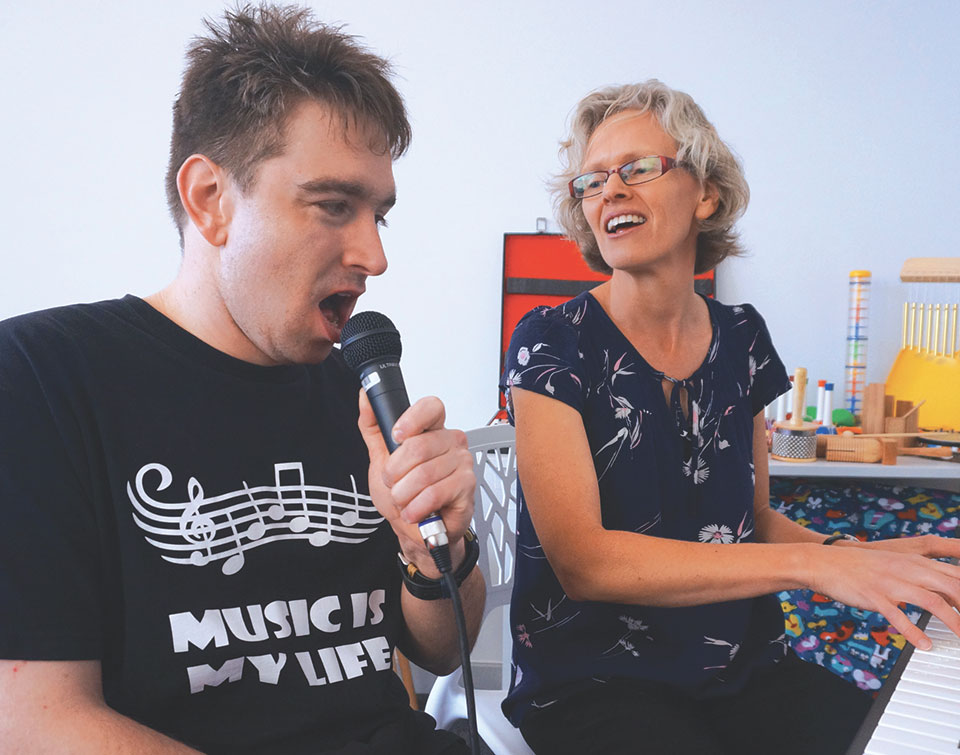
What is Music Therapy?
The Australian Music Therapy Association defines Music Therapy as “an evidence-based allied health profession that supports Australians of all ages and abilities to improve their lives and achieve therapeutic goals.
“Music Therapy is delivered by Bachelor and Masters-level qualified and accredited Registered Music Therapists (RMTs). Music therapists have specialist expertise in how music interacts with the brain, body and in social and cultural contexts to support therapeutic outcomes.”
Music Therapists deliver essential supports to people with disabilities, supporting social, communicative, physical, sensory, emotional, cognitive and behavioural goals. All Music Therapy sessions are individualised, with the Music Therapist employing music-based interventions that are adapted to meet your needs.
In a music therapy session you might sing, play instruments, drum, dance, listen to music, and talk about it.
What is Art Therapy?
As defined by the Australian, New Zealand and Asian Creative Arts Therapies Association (ANZACATA), “Art Therapists have been trained to work therapeutically using the visual arts, including drawing, painting, and sculpture.”
Registered Arts Therapists must complete a minimum two years Masters degree, complete a minimum of 750 hours of supervised clinical placement, hold a professional membership with ANZACATA, and complete continuing professional development and work under a code of ethics.
Art Therapy is a nonverbal creative therapy. Some goal areas that Art Therapy can address are increasing emotion regulation skills, improving social skills, expressing difficult feelings nonverbally, increasing self-awareness, and improving communication skills.
Art Therapy is an allied health profession, like occupational therapy or psychology. An Art Therapist’s training is all about using art as a tool in therapy to support people to meet their goals.

NDIS
Yes, music therapy and art therapy are covered under the NDIS! Newcastle Music & Art Therapy is a registered NDIS provider with existing NDIS clients, who tell us they greatly benefit from the support they receive through music therapy and art therapy.
Due to an internal review at NDIS, there is a lot of confusion around whether music therapy and art therapy are still considered NDIS funded supports. The NDIS have conducted an independent review into funding for music therapy and art therapy, and NDIS participants are allowed to continue to access music therapy and art therapy until new operational guidance is published in the second half of 2025. This review was not considering whether music therapy and art therapy will remain approved NDIS supports, but rather their effectiveness and appropriate price levels.
Regardless of the review findings, music therapy and art therapy will remain part of the NDIS for eligible participants.
You can find the latest statement from NDIA at their website.
Music Therapy is funded under NDIS using Capacity Building: Improved Daily Living, line item – “15_615_0128_1_3 Assessment Recommendation Therapy or Training – Music Therapist”, or “15_615_0118_1 _3 – Early Childhood Intervention Professional – Music Therapist” (under 9 years).
Art Therapy is funded under NDIS using Capacity Building: Improved Daily Living, line item – “15_610_0128_1_3 Assessment Recommendation Therapy or Training – Art Therapist”, or “15_610_0118_1 _3 Early Childhood Intervention Professional – Art Therapist” (under 9 years).
We are more than happy to liaise with your NDIS planner to clarify any issues that may arise and outline how music therapy and art therapy can help you meet your goals.
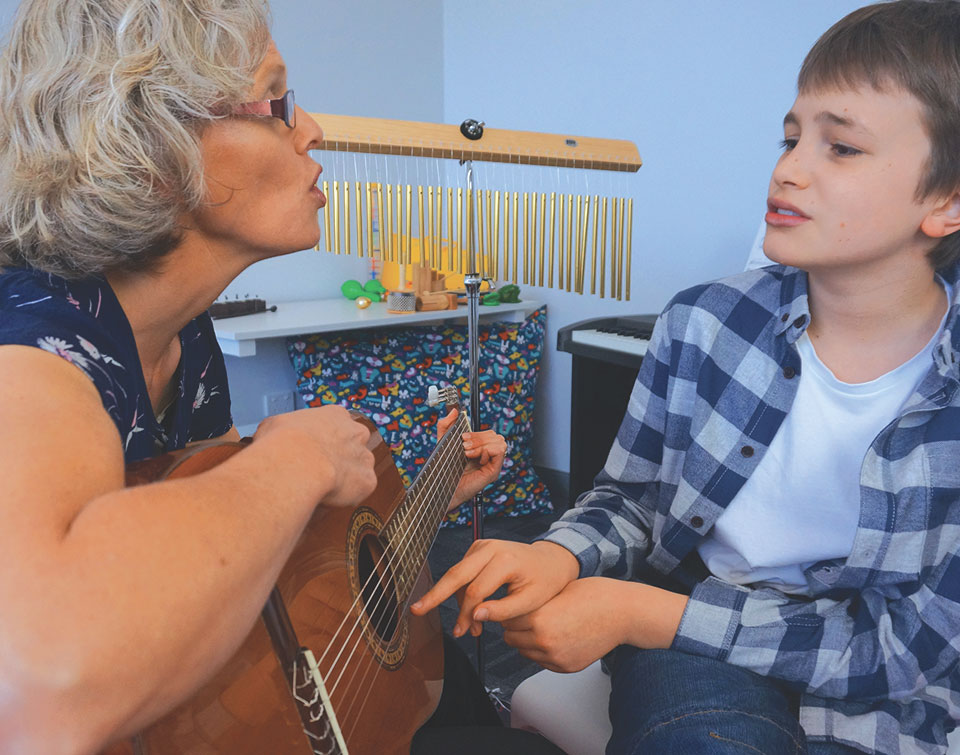

About Newcastle Music & Art Therapy
Newcastle Music & Art Therapy started as a mobile service almost twenty years ago when Susan started to take on private clients in the Newcastle and Lake Macquarie area. Originally as InSync Music Therapy, Susan grew her client base and took on programs such as Sing And Grow (for parents and toddlers) and SNUG (a respite camp for the families of children with rare disorders). As the business grew, clients were increasingly asking for a space where they could express themselves freely. Susan also felt the need to bring more music therapists together where their collective skills and gifts could benefit her clients.
Our services expanded to include art therapy when Registered Art Therapist Katishe Grudnoff joined Susan’s practice. Due to high demand for both music therapy and art therapy services, the Newcastle Music & Art Therapy clinic added three extra therapy rooms during the 2020/2021 summer break. Our team continues to expand to include more talented music therapists and art therapists, so that we can provide quality music therapy and art therapy to clients across the Newcastle, Lake Macquarie and Hunter regions.
Why choose Art Therapy or Music Therapy?
People naturally use music and art to ground themselves in everyday life, whether this is by singing loudly in the car or settling into some drawing in a comfy spot. People can use music and art to regulate, relax, tell stories from their life, safely express uncomfortable feelings, engage their senses, and connect creatively with the people around them.
Registered Music Therapists and Art Therapists are Masters trained Allied Health professionals who understand how to utilise and enhance these innate qualities within a safe therapeutic relationship. Therapists combine music and art with a sound understanding of mental health, neurodiversity, disabilities, the neurobiology of trauma, and therapeutic theory and best practice guidelines. The therapist holds your goals in mind and weaves them into your sessions.
People often come to Art Therapy and Music Therapy to work on emotion regulation, particularly when they find it difficult to engage with solely verbal therapies for a variety of reasons. Art and music interventions can also positively impact motor skills, mobility, and physical goals by engaging brain processes involved in movement, and boosting motivation and enjoyment, which encourages participation.
Music Therapy and Art Therapy will look different for each person – there is no one way to engage in creative therapies! You don’t even have to have previous experience in art-making or music-making – our focus is on giving you a safe space to express yourself and work toward your goals.
Choosing Newcastle Music & Art Therapy means choosing to build your independence and skills using music and art.
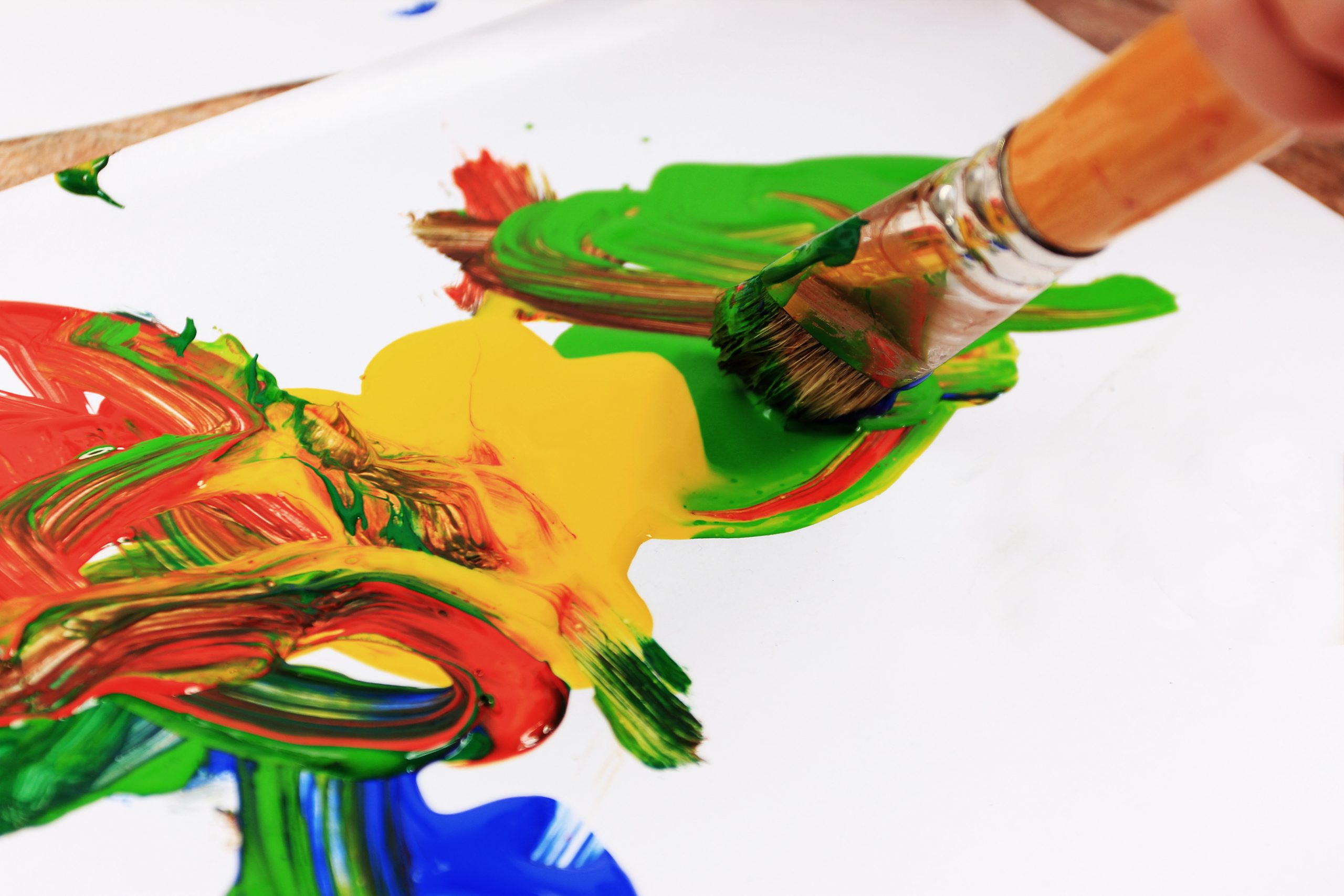
At Newcastle Music & Art Therapy, we’re all about creating a space where everyone feels welcome and valued. We are a neuroaffirming practice, proudly support people with disabilities, LGBTQIA+ folks, and Indigenous peoples.
It’s important to us that everyone feels included, heard and seen. We’re here to break down barriers, celebrate our differences, and make sure everyone can be themselves and shine.
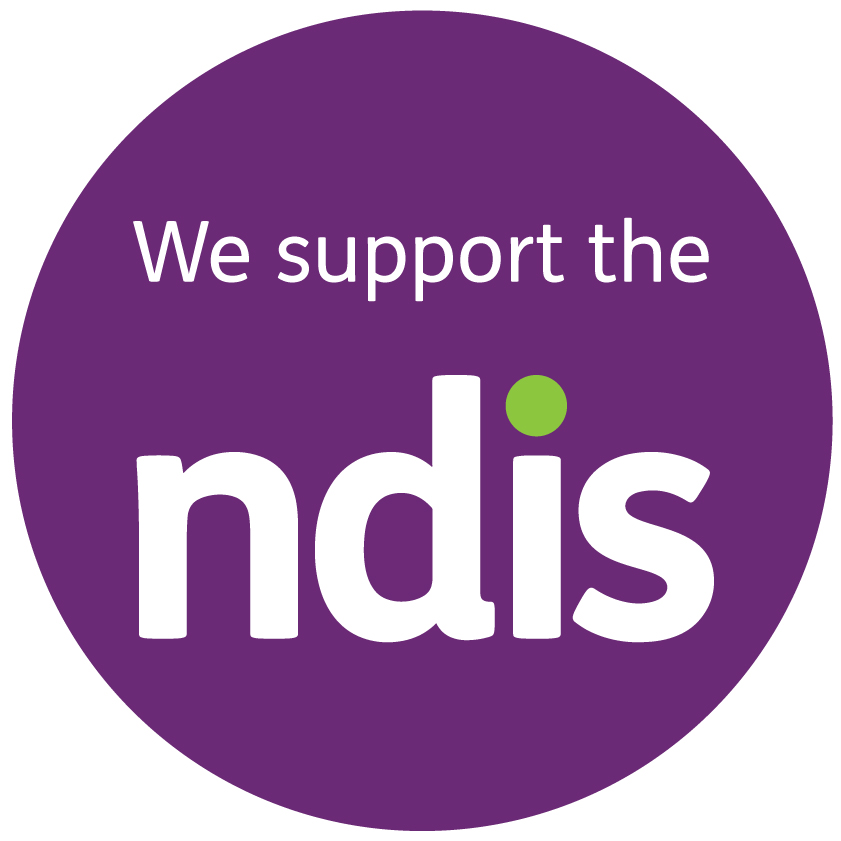
Newcastle Music & Art Therapy operates on Awabakal country. We acknowledge the Awabakal people as the traditional custodians of the Warners Bay region and pay our respects to Awabakal elders past and present.
We are committed to a positive future for the Aboriginal community.
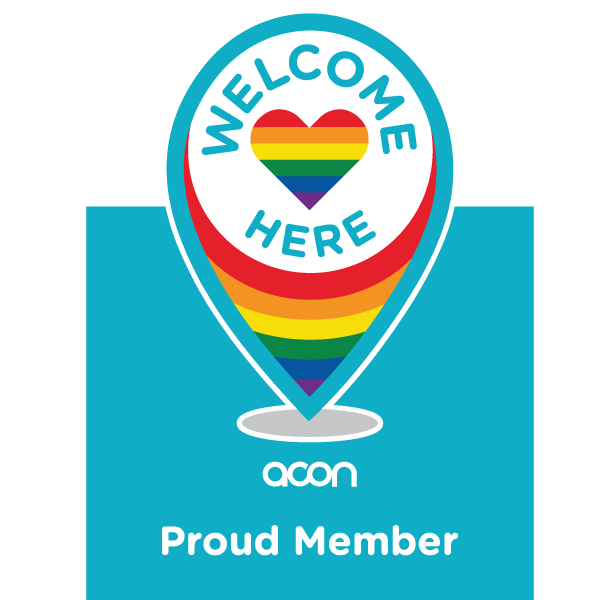
Get In Touch
Our Address
16/363 Hillsborough Road
Warners Bay NSW 2282
